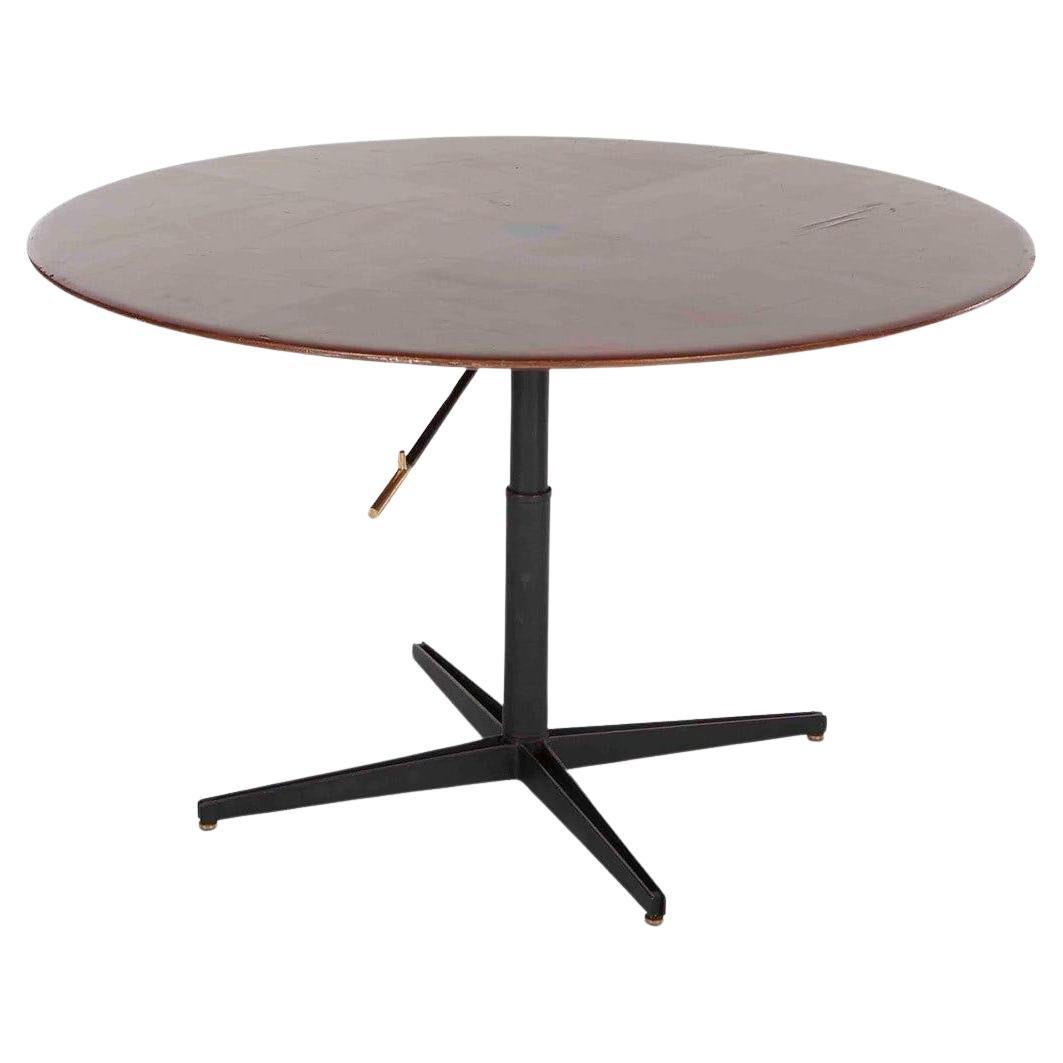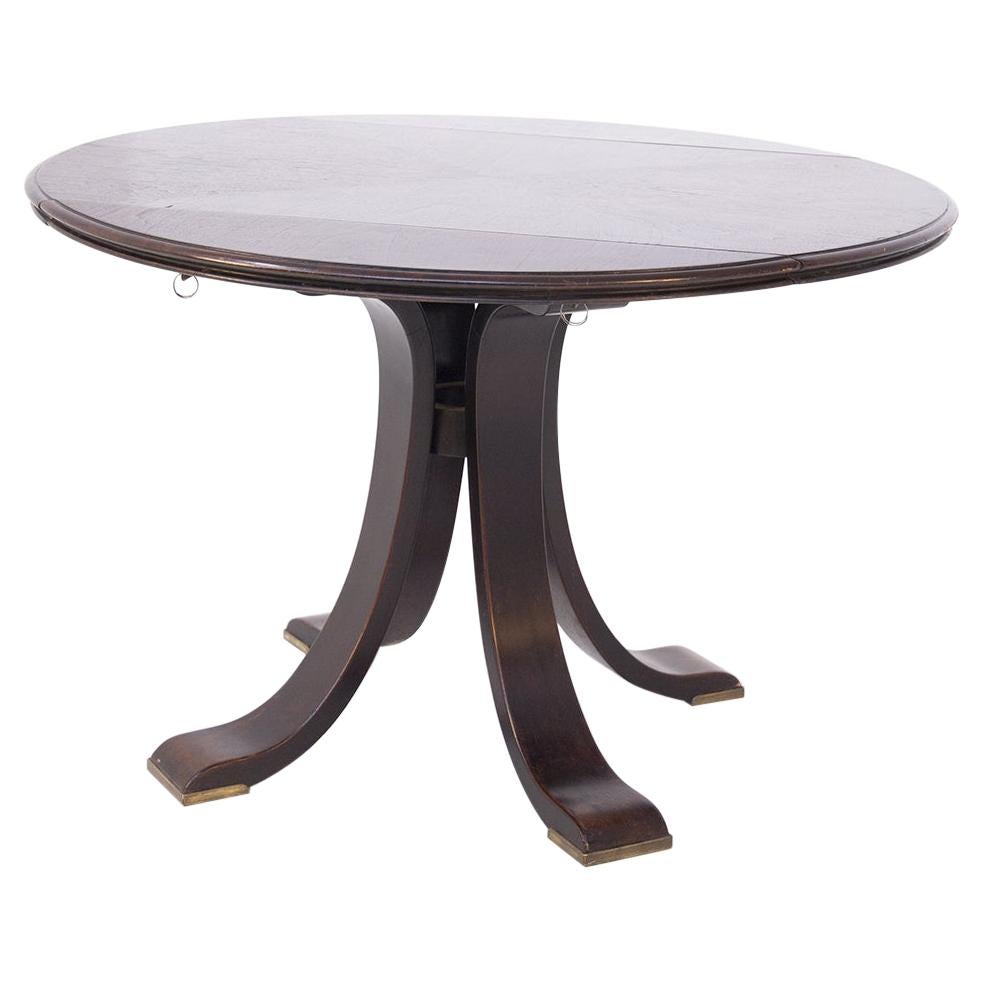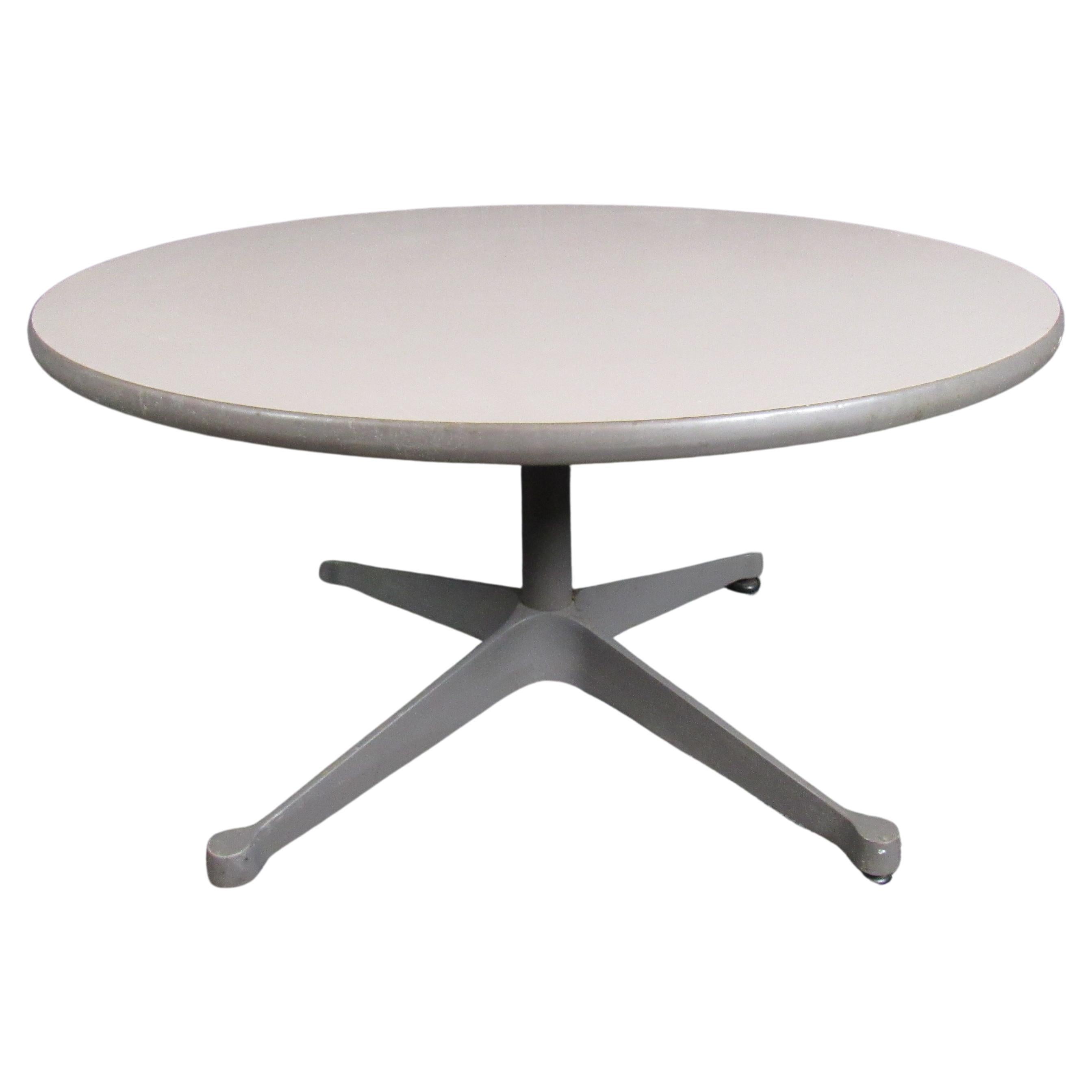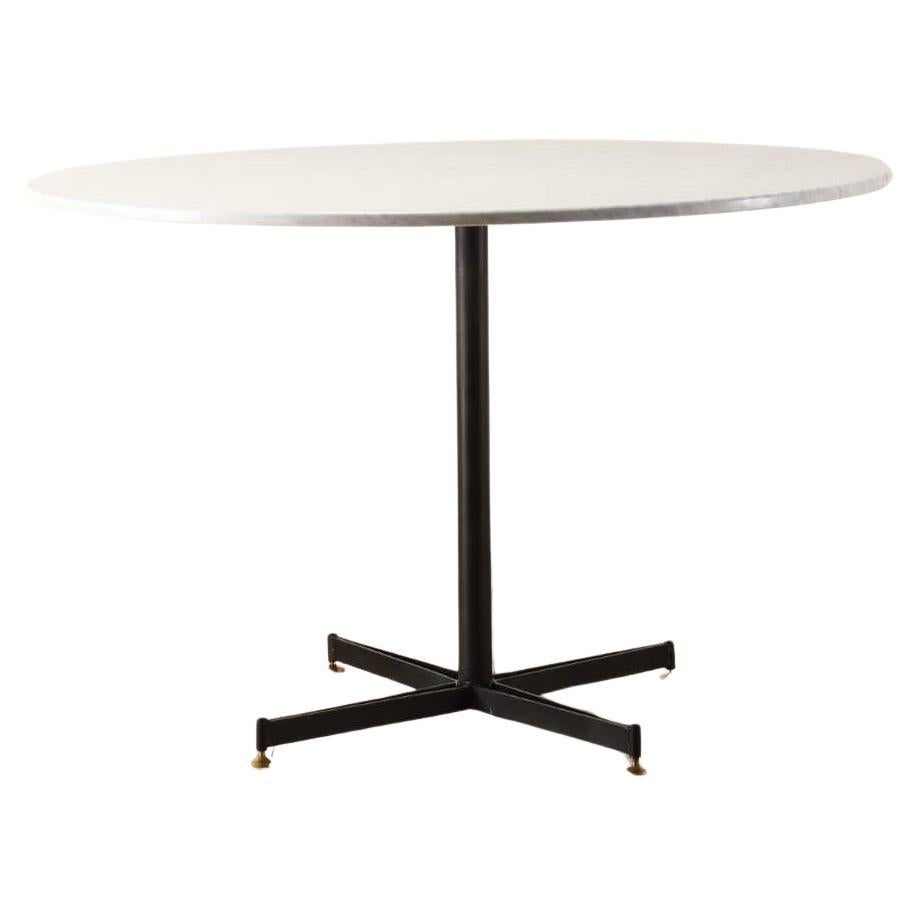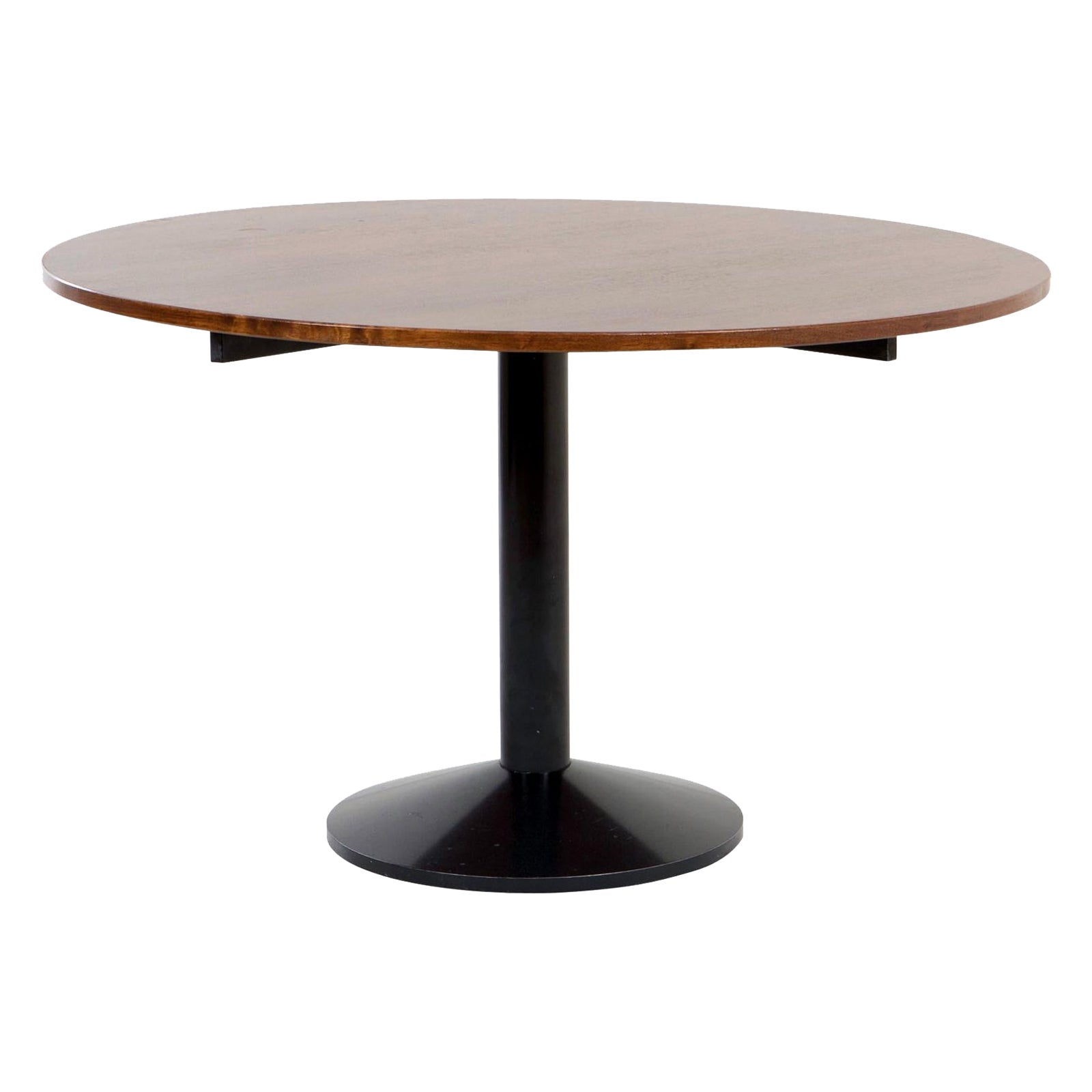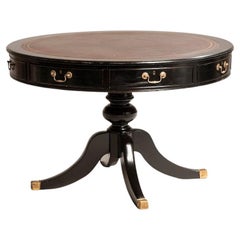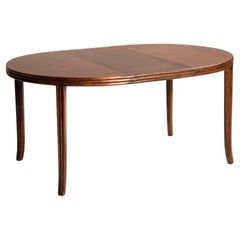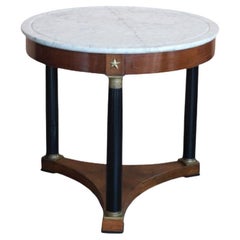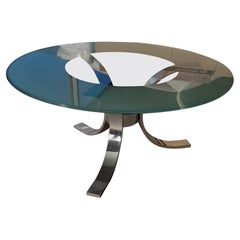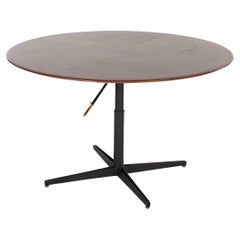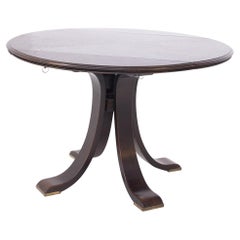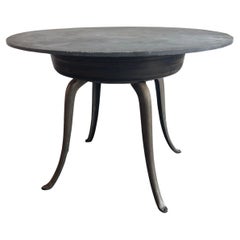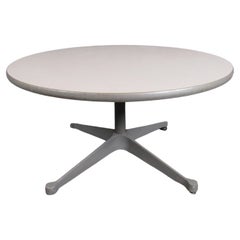Items Similar to Italian Industrial Style Rounded Ceramic and Iron Table by Castagna 20th Century
Want more images or videos?
Request additional images or videos from the seller
1 of 9
Italian Industrial Style Rounded Ceramic and Iron Table by Castagna 20th Century
$3,182.61
£2,343.99
€2,650
CA$4,329.70
A$4,811.25
CHF 2,521.15
MX$59,001.39
NOK 32,155.74
SEK 30,250.94
DKK 20,174.04
Shipping
Retrieving quote...The 1stDibs Promise:
Authenticity Guarantee,
Money-Back Guarantee,
24-Hour Cancellation
About the Item
20th century Italian Industrial style rounded white ceramic and iron table by Pino Castagna, an Italian artist and sculptor from Verona. Signed above the top.
The unique central leg which is in iron presents five irregular size feet. Size of the table diameter 63 cm, height 41 cm.
Excellent conditions, no crack or structural damages, original patina coherent with age and prior use. Even if there is no limit to the imagination and this small table can be set in several locations and places around home, this kind of tables being made of ceramic, being short and small is perfect as servant or support table during a cocktail party, near a sofa for example.
A video is available upon request.
- Dimensions:Height: 16.15 in (41 cm)Diameter: 24.81 in (63 cm)
- Materials and Techniques:
- Period:
- Date of Manufacture:1980
- Condition:
- Seller Location:IT
- Reference Number:1stDibs: LU2072323289642
About the Seller
4.9
Platinum Seller
Premium sellers with a 4.7+ rating and 24-hour response times
Established in 1986
1stDibs seller since 2016
219 sales on 1stDibs
Typical response time: <1 hour
- ShippingRetrieving quote...Shipping from: Cerea, Italy
- Return Policy
Authenticity Guarantee
In the unlikely event there’s an issue with an item’s authenticity, contact us within 1 year for a full refund. DetailsMoney-Back Guarantee
If your item is not as described, is damaged in transit, or does not arrive, contact us within 7 days for a full refund. Details24-Hour Cancellation
You have a 24-hour grace period in which to reconsider your purchase, with no questions asked.Vetted Professional Sellers
Our world-class sellers must adhere to strict standards for service and quality, maintaining the integrity of our listings.Price-Match Guarantee
If you find that a seller listed the same item for a lower price elsewhere, we’ll match it.Trusted Global Delivery
Our best-in-class carrier network provides specialized shipping options worldwide, including custom delivery.More From This Seller
View All1950s Neoclassical Style Round Black Wood Table With Leather Top
Located in IT
The table was made in the 1950s and is in the neoclassical style. It features a lot of wooden details in both the leg frame and the top.
Along the edge of the table, all the same f...
Category
Vintage 1950s Neoclassical Revival Tables
Materials
Leather, Wood
Mc Guire Wood Extendable Round Table, Diameter 113 cm
By McGuire
Located in IT
Table in walnut wood by Mc Guire, 113 cm in size, extendable by 45 cm.
The extended table has an oval shape, reaching 158cm when open.
The table can be combined with the Mc Guire ...
Category
Vintage 1970s Italian Tables
Materials
Wood
French Empire Walnut Wood Rounded Coffee Table White Marble from Carrara Top
Located in IT
Empire Wood Rounded Coffee Table with White Marble from Carrara Top
19th century Italian Empire rounded coffee table in wood.
Original Bronze details such as the stars and the neck...
Category
Early 20th Century Italian Empire Gueridon
Materials
Carrara Marble
1970s Dada International Chromed Legs and Rounded Etched Glass Table
Located in IT
1970s Dada international chromed legs and rounded etched glass Table .
This table has been realized by dada International and it is 152 cm diamete...
Category
Late 20th Century European Modern Tables
Materials
Steel
20th Century Table by Ilmari Tapiovaara for Fratelli Montina
By Ilmari Tapiovaara
Located in IT
Table in ash wood by Ilmari Tapiovaara for Fratelli Montina. The measurements of the table are cm 210 x cm 85 x cm 74 high.
The table and chairs are in excellent condition.
The set...
Category
20th Century Italian Tables
Materials
Ash
Willy Rizzo Fiorentina Model Steel and Brass Crystal Top Table, 1970s
By Willy Rizzo
Located in IT
Fiorentina Model table by Willy Rizzo, Italy, 1970s. Steel and brass structure, glass top. Size: 101 x 204 cm, H 75 cm. A video is available upon request. Good conditions, wears cohe...
Category
Vintage 1970s Italian Modern Tables
Materials
Brass, Steel
You May Also Like
1960's Italian Adjustable Table by Osvaldo Borsani
By Osvaldo Borsani
Located in Sag Harbor, NY
The 1960's Italian Adjustable Table by Osvaldo Borsani is an iconic piece of modern furniture, designed by a renowned Italian architect and designer. The table features a 47 inches d...
Category
Vintage 1960s Italian Tables
Materials
Wood
Italian Round Dining Table Attributed to Osvaldo Borsani
By Osvaldo Borsani
Located in Milano, IT
Round table from the 1950s, attributed to Osvaldo Borsani.
The table is foldable in its side parts.
In fact we find under the table top two locks or brass mechanism that allow the tw...
Category
Vintage 1950s Italian Mid-Century Modern Dining Room Tables
Materials
Brass
$3,362 Sale Price
20% Off
Custom Industrial Round Slate Maple And Cast Iron Table
Located in Brooklyn, NY
Custom, industrial, center or high dining table created by cityFoundry in Brooklyn NY features unique early 20th century components. The round gray slate top rests on an ebonized map...
Category
Early 20th Century American Industrial Industrial and Work Tables
Materials
Slate, Iron
Vintage Industrial Round Grey Table
By Knoll
Located in Brooklyn, NY
A terrific small, industrial table with any number of uses. Sturdy metal legs and a sizeable 30" tabletop are perfect for a unique coffee or cocktail table. Neutral colors are sure t...
Category
Mid-20th Century Mid-Century Modern Tables
Materials
Metal
$630 Sale Price
30% Off
Italian Marble Top Round Table 1970's
Located in Shibuya-ku, 13
This round table, generously crafted from marble, is a timeless piece that captures both the elegance of Italian design and the unique character that only vintage items can offer. Th...
Category
Vintage 1970s Italian Mid-Century Modern Dining Room Tables
Materials
Marble, Metal
Franco Albini TL30 Round Table in Metal and Wood by Poggi 1950s
By Poggi, Franco Albini
Located in Montecatini Terme, IT
TL30 table with a round top in wood and a base in black lacquered metal, designed by Franco Albini and produced by Poggi in the 1950s.
After spending his childhood and part of his youth in Robbiate in Brianza, where he was born in 1905, Franco Albini moved with his family to Milan. Here he enrolled in the Faculty of Architecture of the Polytechnic and graduated in 1929. He starts his professional activity in the studio of Gio Ponti and Emilio Lancia, with whom he collaborates for three years. He probably had his first international contacts here
In those three years, the works carried out are admittedly of a twentieth-century imprint. It was the meeting with Edoardo Persico that marked a clear turning point towards rationalism and the rapprochement with the group of editors of “Casabella”.
The new phase that that meeting provoked starts with the opening of the first professional studio in via Panizza with Renato Camus and Giancarlo Palanti. The group of architects began to deal with public housing by participating in the competition for the Baracca neighborhood in San Siro in 1932 and then creating the Ifacp neighborhoods: Fabio Filzi (1936/38), Gabriele D’Annunzio and Ettore Ponti (1939).
Also in those years Albini worked on his first villa Pestarini.
But it is above all in the context of the exhibitions that the Milanese master experiments his compromise between that “rigor and poetic fantasy” coining the elements that will be a recurring theme in all the declinations of his work – architecture, interiors, design pieces . The opening in 1933 of the new headquarters of the Triennale in Milan, in the Palazzo dell’Arte, becomes an important opportunity to express the strong innovative character of rationalist thought, a gym in which to freely experiment with new materials and new solutions, but above all a “method”.
Together with Giancarlo Palanti, Albini on the occasion of the V Triennale di Milano sets up the steel structure house, for which he also designs the ‘furniture. At the subsequent Triennale of 1936, marked by the untimely death of Persico, together with a group of young designers gathered by Pagano in the previous edition of 1933, Franco Albini takes care of the preparation of the exhibition of the house, in which the furniture of three types of accommodation. The staging of Stanza per un uomo, at that same Triennale, allows us to understand the acute and ironic approach that is part of Albini, as a man and as a designer: the theme addressed is that of the existenzminimum and the reference of the project is to the fascist myth of the athletic and sporty man, but it is also a way to reflect on low-cost housing, the reduction of surfaces to a minimum and respect for the way of living.
In that same year Albini and Romano designed the Ancient Italian Goldsmith’s Exhibition: vertical uprights, simple linear rods, design the space. A theme, that of the “flagpole”, which seems to be the center of the evolution of his production and creative process. The concept is reworked over time, with the technique of decomposition and recomposition typical of Albinian planning: in the setting up of the Scipio Exhibition and of contemporary drawings (1941) the tapered flagpoles, on which the paintings and display cases are hung, are supported by a grid of steel cables; in the Vanzetti stand (1942) they take on the V shape; in the Olivetti store in Paris (1956) the uprights in polished mahogany support the shelves for displaying typewriters and calculators. The reflection on this theme arises from the desire to interpret the architectural space, to read it through the use of a grid, to introduce the third dimension, the vertical one, while maintaining a sense of lightness and transparency.
The flagpole is found, however, also in areas other than the exhibition ones. In the apartments he designed, it is used as a pivot on which the paintings can be suspended and rotated to allow different points of view, but at the same time as an element capable of dividing spaces. The Veliero bookcase...
Category
Vintage 1950s Italian Mid-Century Modern Tables
Materials
Metal
More Ways To Browse
White Iron Round Table
Verona Table
Vintage Servant
Castagna Italy
Sevres Gueridon
Malachite Table Russian
Gueridon Swan Table
Gueridon Swan
Pair Of Empire Gueridon Tables
Ormolu And White Marble Gueridon
Jean Michel Frank Gueridon
Gueridon Animal Table
Calligraphic Sculpted Brass Bench
Eagle Claw Dining Room Table With
Ebonised Gueridon
Louis Majorelle On Sale
Gueridon Art Deco Raymond Subes
Gueridon Trolley
